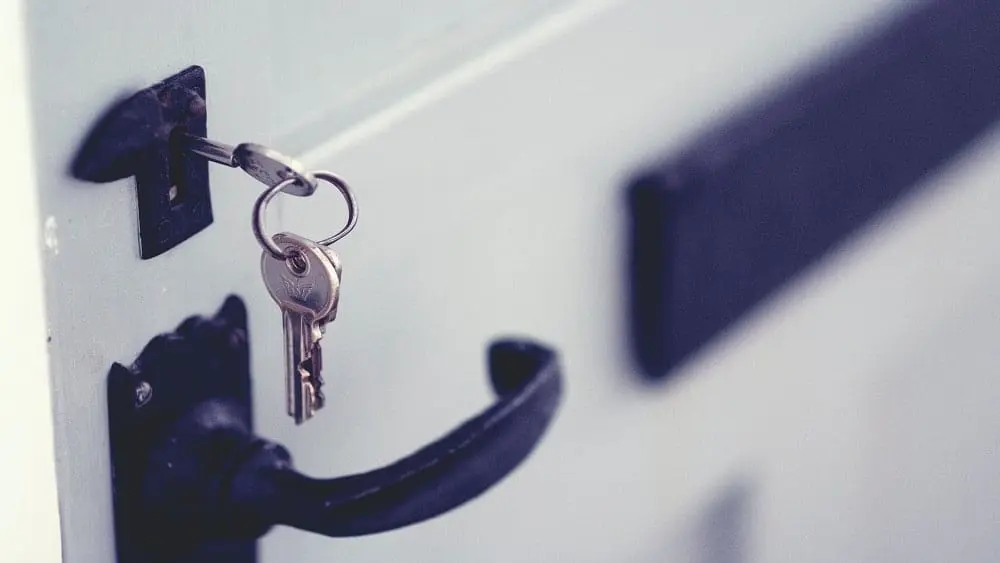
Home safety and security discussions for older adults often revolve around making homes safer for aging in place and independent living, but retirees and seniors are also often seen by criminals as easy prey. That makes it essential for 55+ new homeowners to take steps inside and outside the home to protect themselves – perhaps more than they have ever had to up until this point.
Keeping your home and yourself safe doesn’t have to be intimidating. A few simple actions and thoughtful planning will have you feel safe and secure in your new home for many years to come.
Security Focus: Inside The Home
Security inside the home focuses on actions you can take to minimize the risk of injury occurring.
Prevent Slips and Falls
According to the CDC, falls are the leading cause of death and/or injury in older Americans. It makes sense then for homeowners to take actions to prevent slips and falls inside the home. Install grab bars in the bath, use non-slip rugs, install treads on stairs, make sure you have sturdy handrails where you need them.
Light It Up
Another way to keep yourself from getting injured in your own home is to use adequate lighting. Purchase bulbs with higher lumens or add lamps to rooms that are a little too dark. Nightlights can keep hallways safer at night.
Identify Your Resources
Keep a list of important contacts and phone numbers handy. At a minimum keep the numbers for 911 and non-emergency police/fire, Poison Control, your doctor’s number, and a friend or family member by each phone and program them into your cell phone; making sure to include appropriate labels.
Maintain Protective Devices
Many smoke and carbon monoxide detectors are hard-wired to new homes, but that doesn’t mean they don’t still need testing and replacement from time to time. Find out what kind of detectors you have and set a schedule for testing and battery replacement. Make sure smoke detectors are installed in each bedroom and on every level of the home.
Have a Plan
It’s common for parents of young children to have an escape plan if there is a fire or emergency, but we tend to neglect these plans once kids are out of the house. It’s particularly important in a new house to create an emergency plan, because you’re not yet familiar with the home or the area. Discuss with your spouse and children how you will get out of the house if there is an emergency, and where you’ll go to meet them.
Security Focus: Outside the Home
Security outside the home is more about making your home safer from intruders. As Chris McGoey, a Certified Safety Professional and Certified Protection Professional, points out, burglars look for an easy target.
“Although home burglaries may seem random in occurrence, they actually involve a selection process,” says McGoey. “The burglar’s selection process is simple…choose an unoccupied home with the easiest access, the greatest amount of cover, and with the best escape routes.”
Use the following tips to discourage intruders:
Remember Basic Security Procedures
Simply locking your doors and windows is the most important security action you can take. Even if you are inside the home, lock your doors. Always close and lock doors and windows when you leave the house. Make sure your exterior lights work and are turned on.
Maintain Your Landscape
Well-trimmed trees and shrubs eliminate hiding places and give you a clear view of what may be lurking in your yard. Be particularly careful about placing trees and shrubs near windows and doors, since they give intruders a convenient place to hide while they try to break in.
Don’t Hide Keys
Maybe you’ve always hidden a spare key in a flower pot, but that’s not the best place for it. Experienced burglars know all the tricks. Your best course of action is to give a trusted neighbor a spare key.
Be Wary of Strangers
Don’t let strangers into your home and don’t let unsolicited contractors in either. They could attack you inside the home or use entry into the home to scope it out for a future burglary.
Plan Ahead for Trips
If you’re going to be traveling, try to make your house looked lived in while you are gone. Put the mail on hold. Hire a housesitter or ask someone to come over to check on things once in a while. If you live in a snowy area, have someone lined up to shovel if needed. Put your lights, TV, and music on timers to give the appearance that someone is home.
“Light-timers are inexpensive and can be found almost everywhere. They should be used on a daily basis, not just when you’re away,” explains McGoey.
Go High Tech With Security
Security systems are a great investment for older homeowners. Not only do they alert you if there is an intruder, but they also alert the security company and possibly the police. One thing to keep in mind when selecting a security system is ones that rely on landline phone lines aren’t as reliable. Phone lines can be cut. Choose a system that relies on wireless monitoring to avoid this potential problem.
Take Care of Security Before It’s An Issue
Even if you’re active and healthy now, it makes sense to think about and address home safety and security when you first move in. By taking care of it now, before you really need it, you can reduce the risk of a break-in or accident happening in the future when you may be less able to deal with it. Prevention is still the best medicine, after all!

Liyya Hassanali is a Project Manager and Content Strategist for Kinship Design Marketing, a boutique agency that provides marketing strategies and content for architects, interior designers, and landscape designers. She is a 15+ year veteran of the marketing and advertising industry, working closely with her clients to provide written content that meets their marketing goals and gets results.
Liyya is passionate about home design and décor and is a confessed HGTV and Pinterest addict. When not providing content writing services for her clients, she can be found browsing home décor sites or spending time with her family.
 Homebuying Tips for the Single Buyer
Homebuying Tips for the Single Buyer